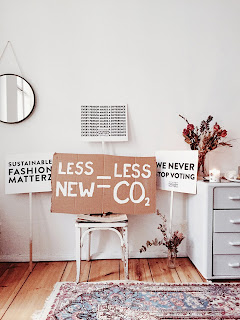Climate change: it's all around us on social media and sometimes even visible in front of our eyes. We have heard the calls of environmental activists to live more sustainably—turning off lights you're not using, not running the tap while brushing your teeth, using reusable grocery bags. Of course, these solutions are centered on the individual rather than governments or corporations responsible for the structural problems that have normalized overconsumption and disregard for the environment. However, collective action of citizens should not be disregarded and can still play an important role in redefining how humanity interacts with our natural environment.
What does the difference between frugality and sustainability have to do with the average consumer? Firstly, frugal consumers are not always sustainable. Though they are using less resources and getting more out of the resources they already possess, they may not be using the most sustainable resources available to them. If you're a sustainable consumer, you likely are already aware of the higher cost that sustainable items sometimes bear. This can be a deterrent for the frugal consumer, who looks for cost effective resources that they can use to the true end of the product's lifecycle (and sometimes even beyond). A sustainable consumer is aware of where their products come from, knowing the underlying social and economic processes that can harm the environment, workers, and more. Because they are produced at a higher quality, with the rights of works and viability of the resources from the environment in mind, these sustainable options are not always the most frugal.
We can see that frugality and sustainable have a delicate balance. The ultimate goal for the everyday consumer would be to try to embody both a frugal and sustainable consumer, which is no easy feat in a world filled with greenwashing. Luckily, the simple actions we take to live more sustainably are, in many instances, also frugal. For instance, let's take the example of the fashion industry. You can be sustainable in the fashion industry by purchasing from second-hand stores or local shops with ethically-made products. You can at the same time be frugal by mending these clothes when they become worn or passing them down to family or friends. Many of the solutions are already in our pocket, making reconciling sustainability and frugality a challenging, but achievable, final goal.



